Brian P. Burns
Art Collector
He’s a man of many talents — business executive, attorney and philanthropist — but it is perhaps for his extensive and unequaled art collection that Brian Burns is best known. Through his efforts, the work of dozens of Irish artists is exhibited regularly at various locations throughout the U.S. In 1996, an exhibition titled “America’s Eye: Irish Paintings” was shown both at Boston College and in Dublin, courtesy of Burns’ own private collection.
Burns is the chairman and president of BF Enterprises, Inc. a publicly-owned real estate holding and development company. A nationally regarded business executive, he has been the moving force behind some 40 corporate mergers.
He is also a director of the American Ireland Fund and the founder and principal benefactor of the John J. Burns (named for his father) Library of Rare Books at Boston College. The library houses more than 100,000 rare books, three million manuscripts and has the largest archive of rate books in the U.S. Burns is vice chairman of the Irish American Fulbright Commission and is a member of the Trinity College Foundation Board in Dublin.
In 1990, the Burns Foundation endowed the library with a Visiting Scholar in Irish Studies chair. His Irish art collection was the subject of a major exhibition for several months in 1997 at the Yale Center of British Art in New Haven, Connecticut.
Burns was a principal benefactor of the first Irish Famine memorial in Cambridge, Massachusetts, which was dedicated in July 1997 by former Irish President Mary Robinson. He currently serves as a member of the Irish Prime Minister’s Economic Advisory Board.
Burns traces his roots to County Kerry. His wife Eileen is a member of the Advisory Board to the National Gallery of Ireland.
Chuck Dolan
Cable Giant
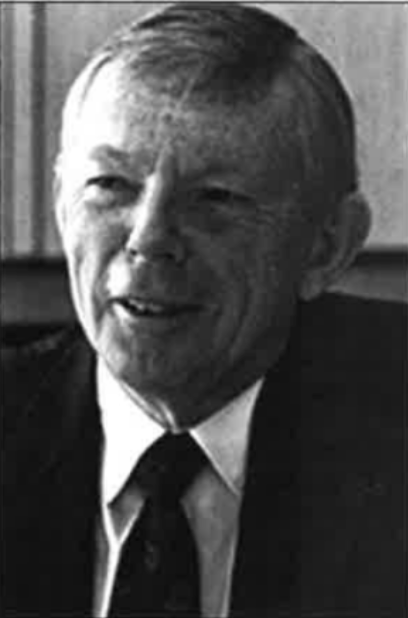
A giant in the television industry, Charles “Chuck” Dolan is the founder and chairman of Cablevision Systems Corporation, one of the nation’s largest television operators, as well as a multi-faceted business providing specialized TV programming and telecommunications services.
A native of Cleveland, Ohio, Dolan is the son of an inventor and spent his childhood in Cleveland before serving in the Air Force and studying at John Carroll University. In his earliest professional endeavors, he and his wife Helen worked from home, editing and producing short film reels of sports events for syndication to television stations.
Dolan went on to found Home Box Office Inc. (HBO) in the 1970s. He then sold it to Time Life Inc. and established the Cablevision Systems Corporation in 1973. In 1997, Cablevision purchased a majority interest in the Madison Square Garden properties, which include the arena complex, the NBA New York Knicks, the NHL New York Rangers, as well as the MSG Network.
Dolan and his wife have six children. Their son James is chief executive of Cablevision. Two other sons, a nephew and son-in-law also hold senior management posts in the company.
Dolan, who serves on several boards, is chairman of the National Academy of Television Arts and Sciences. He was the 1998 recipient of the American Irish Historical Society’s gold medal.
Charles Feeney
Generous Soul
“Nobody can wear two pairs of shoes at one time.”
The publicity has died down somewhat in the intervening years (which is how he prefers things), but New Jersey businessman Charles “Chuck” Feeney will always be remembered as the man who gave his millions away…quietly.
Feeney sprang into the public eye in 1996, when it emerged that he had donated over $600 million, a huge portion of his personal wealth, to create the fourth-largest philanthropic organization in the U.S.
William Nelsen, the president of Citizens’ Scholarship Foundation of America, which has received support from Feeney’s Atlantic Foundation for over a decade, told the New York Times that his organization had received “the most valuable kind of assistance” from Atlantic. He added: “As an organization, we’ve more than quadrupled in size since getting support from this [then] anonymous donor.”
And Times columnist Maureen Dowd, writing after Feeney addressed the Irish America Business 100 luncheon two years ago, a rare occurrence for one so publicity-shy, described his desire for anonymity as “startling in an age when people stamp their names on every available surface.”
Feeney was unmasked as the anonymous donor who had given huge sums of money to educational institutions and charitable foundations only after the chain of Duty Free Shops he had co-founded was sold.
He holds both Irish and American citizenship and is well known for his support of Irish causes. Less known is his huge role in bringing American involvement to bear on the Irish peace process. He was a key behind-the-scenes figure also in helping Irish immigrants win legal status in the United States. Three Irish universities — Trinity College Dublin, Dublin City University and the University of Limerick — benefited from Feeney’s magnanimity, and he also funded the setting up and initial running of the Sinn Féin office in Washington, D.C.
William J. Flynn
Peace Broker
“No pessimist ever set foot on Ellis Island, no pessimist ever crossed the praries, and no pessimist built cities from one end of the continent to the other. These things were done by people with vision and hope.”
William J. Flynn will always be remembered as the man who dispensed with a great taboo — the notion that American business should not get involved in bringing peace to Ireland. He broke the mold when he set out in tandem with a few others to change the reality that American business had nothing to offer to peace in Ireland. The Irish peace process is the result.
Thus, the name of the genial Mutual of America chairman has become as well known in Irish political circles as it has in the business world. Flynn helped build Mutual from a small straggling organization in 1971 into the industry leader and insurance giant it is today.
He was a key figure in the U.S. delegation that worked tirelessly to broker the frost IRA ceasefire in 1994. In recognition of his leadership and diplomacy on this front, Flynn was the inaugural recipient two years ago of the Initiative for Peace Award from the National Committee on American Foreign Policy. As chairman of the committee, Flynn’s advice was instrumental in persuading President Clinton to grant a U.S. visa to Sinn Féin president Gerry Adams in 1994. He has also led two delegations to Northern Ireland to push for economic investment and peace in the region. This year, he was back again as part of a team of American observers at Drumcree.
A native New Yorker, whose parents came from Counties Mayo and Down, Flynn is president of the board of Flax Trust America and a member of the Ireland America Advisory Board. He is a past chairman of the Ireland Chamber of Commerce in the U.S.A. and has been a board member of several organizations, including the American Cancer Society Foundation, Co-Operation Ireland and the Catholic Health Association of the United States. This publication chose him as Irish American of the Year in 1994, and in 1996, as Grand Marshal, he proudly led the New York St. Patrick’s Day Parade up Fifth Avenue.
Thomas J. Flatley
Boston Benefactor
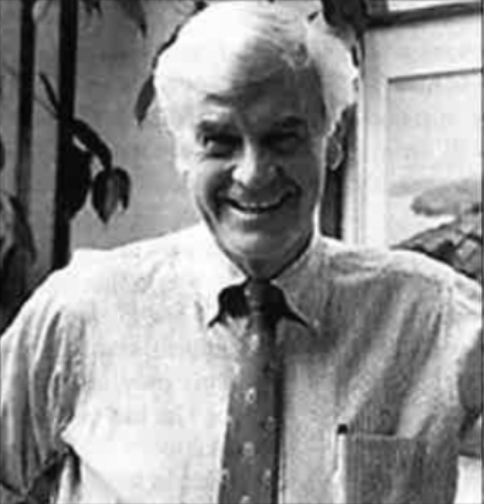
Thomas Flatley was born in Kiltimagh, County Mayo 67 years ago and like many Irish emigrants of the era arrived in America in 1950 with little money and few prospects. He started off his working life in a German delicatessen in New York and later served in the Korean War after which he moved to Boston.
At age 26 he became founding president of the Flatley Company, which eventually became the largest sole-proprietor business in the U.S. with multi-million-dollar real estate and construction holdings.
He has made the Forbes 400 Richest Americans on several occasions and continues to be a real estate and construction powerhouse in Boston. He is best known in Irish America, however, for his extraordinary charitable works. A huge benefactor of The American Ireland Fund he also personally underwrote the Boston Irish Famine Memorial, the only major full-scale commemoration in that city of the event that defined the Irish in America. The richest Irish-born immigrant of his generation, Thomas Flatley is a man who has never hesitated to give back. He has certainly come a long way from the penniless emigrant who arrived on America’s shores all those years ago.
Merv Griffin
Entertainer
“My background first drew me to Ireland, but now I have a reason to be here for many years to come.“
Entertainer, entrepreneur, producer, gourmet — is there anything Merv Griffin hasn’t done? Millions of Americans remember him as the host of The Merv Griffin Show, but his reputation as producer, entrepreneur and hotelier is rapidly growing as well. Merv Griffin is a force to be reckoned with.
Of all of his undertakings, the one dearest to the hearts of the Irish and Irish Americans is his purchase and renovation of St. Clerans, the centuries-old manor house in County Galway that was once the residence of the director John Huston and his family. Griffin’s own Irish background initially drew him to Ireland, now St. Clerans gives him a reason to keep coming back. Of the many jewels in Griffin’s crown of hospitality, St. Clerans is the first Merv Griffin Hotels property in Europe.
Born in San Mateo, California, Griffin started out in entertainment by entering talent contests, writing songs, singing on the local radio station and later touring with “Freddy Martin and His Orchestra.” Increasingly popular with nightclub audiences, he struck gold in 1950 with his recording of “I’ve Got a Lovely Bunch of Coconuts.”
Doris Day saw his nightclub performance and was so impressed she arranged a screen test for him at Warner Bros. Studios. After starring in several hit movies, he crossed over into television, appearing on The Arthur Murray Show, The Jack Paar Show and others. In 1962, NBC gave him his own hour long talk show — The Merv Griffin Show.
Through Merv Griffin Entertainment, he continues to develop and produce successful game shows like Jeopardy! and Wheel of Fortune along with other television programs and feature films.
Griffin also has a private vineyard in California where he oversees the bottling of wines distributed under his “Mont Merveilleux” label. What will this man try his hand at next?
Joseph Patrick Kennedy
Patriarch
“He may be president, but he still comes home and swipes my socks.“
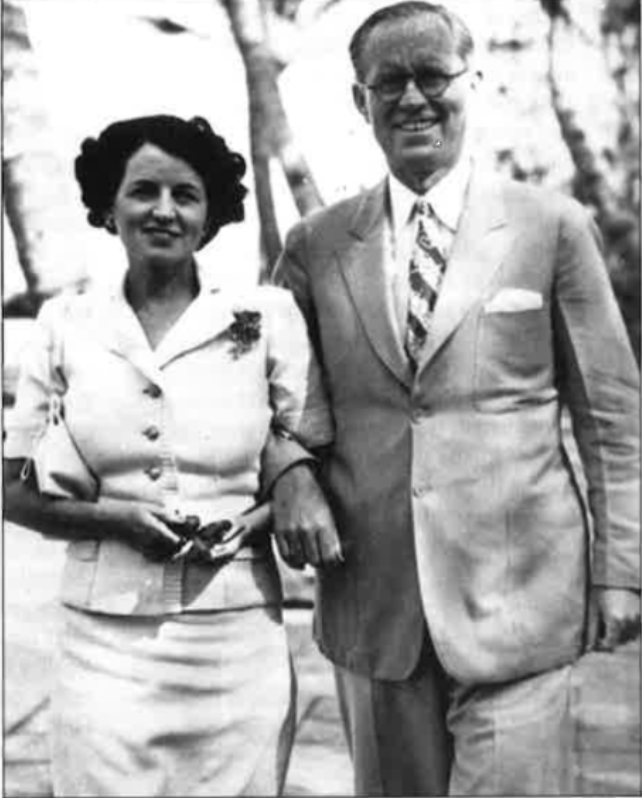
Apart from breaking new ground for Catholic Irish Americans in finance and politics, Joseph P. Kennedy should be remembered for shaping a family whose generations of continued public service throughout this century continue to provide Americans with a beacon of inspiration. As patriarch, politician and financier, his accomplishments have made the path into society for Irish Americans that much easier.
Only one generation removed from the Famine ship that carried his family to America, Kennedy became the first truly great Irish American success story on Wall Street, using his legendary ability to talk, spin a deal and weave a vision to create a financial and political legacy that reaches down to his great-grandchildren today.
Kennedy’s ancestors emigrated to the United States in 1848 from Dunganstown in County Wexford. Joseph was born in Boston in 1888 to Patrick J. and Mary (Hickey) Kennedy. Patrick Kennedy, a saloon keeper, made it a point to send his son to “proper Bostonian” schools, and so Joseph attended Boston Latin School and Harvard College.
In 1914, Kennedy married Rose Fitzgerald, the daughter of John F. “Honey Fitz” Fitzgerald, the mayor of Boston. The couple had four sons and five daughters.
Kennedy began his career as a bank examiner, and by the age of 26 was president of the Columbia Trust Company. During World War I, he was assistant general manager of the Bethlehem Shipbuilding Corporation. He later turned his attention to investment brokering and Hollywood, where he integrated the Keith-Albee-Orpheum movie-house chain and reorganized such major film companies as Paramount Pictures. In 1934, at the height of the Great Depression, Kennedy was a multi-millionaire, and his fortune was growing.
He also directed his business acumen to benefit the Democratic Party, serving as fund-raiser and adviser to President Franklin D. Roosevelt during the 1932 campaign. In 1934, Roosevelt appointed him chairman of the newly-formed Securities and Exchange Commission, which led to the chairmanship of the U.S. Maritime Commission. In 1937, he was assigned to England as Ambassador to the Court of St. James, making him the first Catholic and the first Irish American to hold the position.
When Kennedy arrived in England with his wife and nine children, his channing, informal ways endeared him to the British media. The honeymoon did not last, though. As the specter of World War II loomed larger and larger, Kennedy lost popularity for advocating accommodation of Hitler. When England entered the war, Kennedy expressed his doubts about the country’s prospects for survival, estranging him further from the English and from Washington.
Kennedy returned to the United States in October 1940, and resigned his position as Ambassador one month later. But the damage done by his war-time stance to his political career was not to be remedied. Realizing this, he turned his attention to his sons, grooming them for political office. He originally had hopes of his eldest son Joseph winning the Oval Office, but when Joseph was killed during World War II, he redirected his attentions to the next son in line, John. John’s entry into national politics reenergized Joseph in his later years. His influence on the political careers of his children is immeasurable, but it was Rose’s maxim that has proved to be their guiding principle, “To whom much is given, much is expected.”
In 1961, Kennedy suffered a stroke that left him disabled for the remaining years of his life. He died in his beloved Hyannis, Massachusetts on November 18, 1969.
Denis Kelleher
Wall St. Success Story
One of the great Irish immigrant financial success stories of the century, Denis Kelleher, the son of a shoemaker, left his native Kerry in 1958 and landed on Wall Street as a messenger boy with Merrill Lynch soon afterwards. The night before emigrating he had come home late from a dance in the nearby village of Rathmore and found a letter from his sister saying a ticket to America was waiting for him at Shannon Airport. That was all it took, and the next day he left his old life behind forever.
Starting out as a runner at Merrill Lynch, he spent the next seven years working his way up from the ground floor. After a stint in the U.S. Army he left the company and joined the legendary Ruane Cunniff firm run by his close friends Bill Ruane and Rick Cunniff. It was to become one of the most successful money-managing companies on Wall Street.
In 1981, Kelleher went out on his own, starting the Wall Street Clearing Company which provided clearing services for over 70 brokers and 900 banks. Hugely successful, it was bought out by Alex Brown and Sons in 1989.
Soon after, Kelleher founded Wall Street Investor Services, which was soon managing the investment portfolios of some of the biggest pension funds and private investors in the United States. Now called Wall Street Access, it specializes in discount brokerage, asset management and bank brokerage programs. It processes billions of dollars annually and is listed on the U.S. Stock Exchange. If it ever went public its net worth would likely be over the billion dollar mark.
Despite his extraordinary success, Kelleher has never lost sight of his humble roots. When the issue of Irish illegal immigration became a major problem in the 1980s, he was one of the chief underwriters of organizations seeking to legalize the undocumented. He has also been a major contributor to the American Ireland Fund and has his own special scholarship fund in his native Kerry to help promising students. He was awarded the Ellis Island Medal of Honor in 1995.
Doland Keough
Philanthropist
“Suddenly an Irish door has been opened in America, and across the country people with Irish in their blood have become not just more aware of it, but more interested and proud of it.“
Don Keough represents something fundamental in Irish American business — he is in many ways its chieftain and his involvement has had huge economic benefits for the Emerald Isle.
He has used his position, first as president and COO of Coca-Cola and then as chairman of investment bank Allen and Company to tirelessly promote and encourage American involvement in Irish affairs, including philanthropy and the peace process.
As one of the most highly respected figures in American business, his word on these issues carries major sway. As a typical example of his quiet business diplomacy he recently arranged for Microsoft chief Bill Gates, Berkshire Hathaway supremo Warren Buffet and other leading businessmen to visit Ireland.
Keough’s love of Ireland and all things Irish has led to his continuing deep involvement in that country’s economic development, and he went on to serve on the Taoiseach’s (Irish Prime Minister) Economic Advisory Board, visiting Ireland several times in the process.
He is currently chairman of the board of Allen &Company, a New York investment banking company, having previously served as president of the Coca-Cola Company. He retired from Coca-Cola in 1993, after over 40 years of service.
A graduate of Creighton University and navy veteran, Keough has been awarded honorary doctorates from Trinity College Dublin, and is former chairman of the University of Notre Dame. He and his wife Marilyn endowed a chair of Irish Studies at Notre Dame in 1993. In October of last year, the Keough Notre Dame Center of Irish Studies was officially opened in Dublin.
Keough is a past recipient of the Laetare Medal, the highest award that can be bestowed by the home of the Fighting Irish. He has also been honored with the American Irish Historical Society’s medal and was this publication’s Irish American of the Year in 1993.
Peter Lynch
Wall St. Wonder
“Investing is a passive business. You can’t control the market. You just have to sit back. You have to understand you’ll make mistakes. It’s not your fault. If you’re consistent and you keep doing it, you’ll win.“
Peter Lynch is much more than a smiling face on a billboard or in a television ad — he is the most successful money manager in the history of Wall Street. His know-how led the Fidelity Magellan Fund to grow an astonishing 2,800 percent over 13 years, a feat which has afforded him the fiscal freedom to do what he likes best: give his money away.
Lynch retired from the Magellan Fund in 1990 to devote his time to non-profit work and spend more time with his wife and family. Earlier this year, he and wife Carolyn donated more than $10 million to Boston College’s School of Education, easily the largest individual gift ever made to the College.
A 1965 graduate of Boston College and a member of its board of trustees, Lynch is also a best-selling author. Two of his titles, One Up on Wall Street and Beating the Street, sold over one million copies and have been translated into several languages, including Chinese, German, Korean, Polish, Swedish, Spanish and French.
Lynch’s great-grandparents, on both his father’s and mother’s side, are from County Kerry. He and his wife have three daughters.
Andrew Mellon
Philanthropist
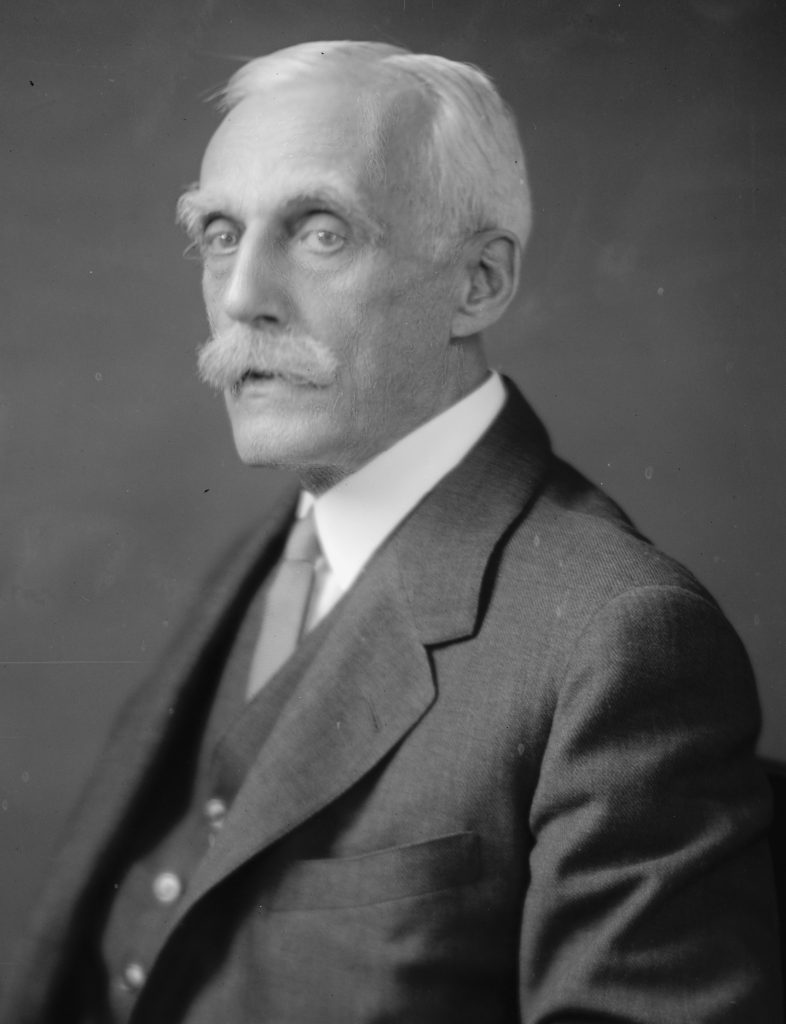
One of the most prominent and certainly one of the wealthiest businessmen of the century, Andrew Mellon played a major role in the development of industry, balancing the national economy, and the development of philanthropic institutions.
The son of Thomas Mellon, a native of County Tyrone, Ireland, Mellon was born in 1855, in Pittsburgh, Pennsylvania. He studied at Western University of Pennsylvania, but left school to run his father’s lumber and building business. Observing his son’s business acuity, Thomas Mellon transferred ownership of his private banking firm, T. Mellon and Sons, to Andrew in 1882.
Under Andrew Mellon’s leadership, the firm flourished by identifying and investing in companies with growth potential at a time of huge technological advances. The bank became the principal stock holder and developer of such industrial powerhouses as the Aluminum Company of America (Alcoa), Gulf Oil, United States Steel and the Standard Steel Car Company. Mellon also contributed to the building of the Panama Canal, the George Washington Bridge and New York’s Waldorf-Astoria Hotel. In 1902, T. Mellon and Sons incorporated as Mellon Bank.
Mellon became financially involved in conservative Republican politics in Pennsylvania and when Warren G. Harding was elected President in 1920, he asked Mellon to become Secretary of the Treasury, a position he kept into the Hoover administration. In 1932, President Hoover appointed Mellon Ambassador to Great Britain where he assisted in implementing the war debt moratorium and advised on international finance.
A private art collector, he left his collection of classic paintings and sculpture to the federal government in 1937 to establish the National Gallery of Art in Washington, D.C. The collection was valued at more than $35 million. Mellon did not wish the institution to bear his name in the hopes that it would prompt the giving of others. He died in 1937, four years before the gallery’s completion.
Scott G. McNealy
Sun King
“I want Sun to be controversial. If everyone believes in your strategy, you have zero chance of profit.“
Sun Microsystems, a company which Scott McNealy helped to found in 1982, is the quintessential Silicon Valley success story. In just 16 years, the company has become the leading global supplier of networked computer systems, and for more than a decade, McNealy has been advancing Sun’s vision and slogan — “The network is the computer.”
The company is listed in the Fortune 500, and was described by Fortune as the best qualified company to “seed the growth of the Internet.” According to Business Week, Sun Microsystems “can claim to be the only pure player in the business.”
The Wall Street Journal says the California computer company “has long been praised for its accomplished, if cocky, management team and a history of innovation.” This is mainly attributable to Java, says the Journal, the computer language that Sun is pushing to challenge Microsoft.
MeNealy is a native of Columbus, Indiana, and graduated from Harvard with a degree in economics. He also earned an MBA at Stanford University and is married with two young sons.
Thomas J. Moran
Community Leader
“When the scientists finish the human genome project, I am sure that they will find a gene that calls us back to the home of our ancestors, no matter how long we have been gone.“
He is passionate about the ongoing struggle to find peace in Northern Ireland, and about the importance of securing adequate economic investment in the troubled area, but Tom Moran has also taken the time to ensure that he sees the issue from both sides.
To this end he was one of the people who invited Democratic Unionist Party leader David Ervine to speak at a National Committee on American Foreign Policy luncheon earlier this year. Ervine is widely regarded as one of the most impressive speakers on the Northern Ireland issue, and the event held at the New York City headquarters of Mutual of America ensured that he would be exposed to members of the community who may not previously have had a chance to hear his thoughts.
As president and chief executive officer of Mutual of America, one of the nation’s preeminent insurance companies, Moran is a familiar face in the business world, and also in philanthropic circles, where he is well known for his longtime dedication to several Irish American humanitarian and community causes.
Concern Worldwide, the Irish relief organization, and Project Children, which every year brings children from Northern Ireland to the U.S. on vacation, have long been on the receiving end of his quiet assistance and generosity. Moran serves on several boards, including the National Center for Disability Services, the National Committee on American Foreign Policy, and the United Way of New York City. He is also a member of the Ireland Chamber of Commerce in the U.S.A and the Chairman of the North American Board of the University College Dublin Graduate School of Business. Among other honors, he has been awarded The Calvary Medal, The Ellis Island Medal of Honor and The Terence Cardinal Cooke Award.
His ancestors come from Kesh in Fermanagh and Carrick-on-Suir in Tipperary, and Moran travels to Ireland frequently for both business and pleasure. A dedicated Harley Davidson enthusiast, he lives in New York City with his wife Joan.
Thomas Murphy
Media Giant
“I think it’s an Irish thing, this ability to sell and get along with everybody.“
One thing is certain, Thomas Murphy has mastered the art of making a deal. After building a bankrupt television station in Albany into the Capital Cities empire, he ended up taking over media giant ABC in 1985 in a $3.5 billion deal. Ten years later, he turned around and sold Capital Cities/ABC to Disney for $19 billion. To illustrate the magnitude of Murphy’s business success, a $10,000 stock investment in his nearly bankrupt Albany company all those years ago, would have yielded $10 million today. What happened in those intervening years to explain such a turnaround? Quite simply, Murphy and the media revolution.
Murphy was born in Brooklyn, the son of a New York State Supreme Court Judge, and a descendant of natives of Birr, County Offaly. He attended Princeton University for a year before he joined the Navy in 1943. The Navy sent Murphy to Cornell University to study engineering. After his Navy tour ended, he tried to enroll at Harvard Business School but was told, because of his tender age (he was 21 at the time) to go and work for a year and then reapply. His second attempt was more successful: Murphy ended up a Baker Scholar and he graduated with the class of 1949, famed for its extraordinarily high percentage of success stories.
Murphy spent some time at an advertising agency and as director of new products for Lever Brothers, but he really wanted to run his own company. So when the opportunity came for him to take over a bankrupt UHF station in Albany he jumped at it.
Under Murphy’s leadership, the station turned around, eventually buying stations in Raleigh/Durham, North Carolina and Providence, Rhode Island and becoming Capital Cities. It was to be the start of an empire.
Tony O’Reilly
The CEO
“I never really felt I left Ireland. I feel a sense of loyalty, committment, and indeed, debt to Ireland.“
With an estimated personal fortune of over a billion dollars, Dr. Anthony J.F. O’Reilly is Ireland’s richest man; his influence in business and control in the Irish media is matched only by his desire to give something back to his homeland.
One way he seeks to repay his sense of indebtedness to Ireland is through his commitment to contributing to a peaceful resolution of the conflict in Northern Ireland, and he hopes the aid supplied through the various Ireland funds will do just that. And indeed they have helped as no Irish fund has — last year The American Ireland Fund alone awarded more than $12 million in grants to almost 250 organizations throughout Ireland.
As chairman and former chief executive officer of international food group H.J. Heinz, O’Reilly is also one of the most influential men in Ireland through his stake in the Independent Newspaper Group. But it is his involvement as cofounder of The American Ireland Fund and the other Ireland Funds in Canada, Australia, Great Britain, France, Germany and New Zealand that affirms his continuing loyalty to his native Ireland.
Born in Dublin in 1936, O’Reilly studied law at University College Dublin, becoming, at age 25, the general manager of An Bord Bainne, the Irish state-owned dairy processing group. During his tenure there, he launched Kerrygold, the most successful Irish brand name ever. O’Reilly left to work for Heinz in 1968, and within eleven years became CEO of the Pittsburgh-based group, which has 38,000 employees worldwide.
O’Reilly also has other extensive business interests, including roles in Fitzwilton and Waterford Wedgwood, both internationally branded companies. Married to Greek heiress Chryss Goulandris, he has homes in Dublin, Kildare, Cork, Pittsburgh, and the Bahamas. The father of six children, he is a keen rugby fan, having played professionally for Ireland in his youth.
John Quinn
Patron of the Arts
“Ulysses may not be the final thing. But it may lead to a new literary form.“
Reading the correspondence of W.B. Yeats, Lady Gregory, John Millington Synge, Ezra Pound and James Joyce, one repeatedly comes upon the name John Quinn. When this New York lawyer died in 1924, there were few people in the world of art who didn’t know who he was. Today, unfortunately, there are few who do.
Quinn was, quite simply, one of the driving forces behind the Irish Literary Renaissance, alternately supporting, advising and sometimes protecting the luminaries of Irish art and literature in the early part of the century. He was also an avid collector of art and original manuscripts. Along with his collection of paintings, he owned all of Joseph Conrad’s manuscripts and the first draft of T.S. Eliot’s Waste Land.
But what is most remarkable about this accomplished man was his unstinting generosity to Irish artists. When the American public did not know what to make of the work of Yeats, Synge or Joyce, Quinn served as the writers’ interpreter and champion.
The Yeats family were undoubtedly the ones who benefited most from Quinn’s generosity. He arranged W.B. Yeats’ first North American tour in 1903-’04, providing the poet muchneeded exposure. He was also supporter and advisor to J.B. Yeats, the poet’s father, supporting him in his declining years. In fact J.B. Yeats is buried in the Quinn family plot in Chestertown, New York. Quinn also supported Jack Yeats’ career and Cuala Industries, run by the Yeats sisters.
But Lady Gregory, John Millington Synge, James Joyce and other Irish artists also enjoyed Quinn’s support. When Lady Gregory and her touring company’s production of Synge’s Playboy of the Western World ran into censorship difficulties in Pennsylvania, Quinn was thei r defense lawyer. Quinn also bought and exhibited several paintings of George Russell’s (A.E.).
Quinn advised John Millington Synge about navigating the business of publishing, secured copyrights and settled contracts for the young writer. He also provided moral and financial support for Douglas Hyde, founder of The Gaelic League, who became the first president of Ireland. It seems that no member of the Irish literary revival went untouched by Quinn’s insight and generosity.
James Joyce also benefited from Quinn’s patronage, gladly selling him original manuscripts. At one point Joyce expressed concern that Quinn had paid him too much for the manuscript of Portrait of the Artist as a Young Man. While Quinn found Joyce difficult, he was continually drawn to his writing, and so he kept sending the checks. He tried to advise Joyce as well, but he was usually ignored.
It was Quinn who also argued the case for the publication of Ulysses in the U.S., developing the highly unusual defense that the book could not corrupt because it was incomprehensible. While he did not win the case, his argument was later the basis for the decision twelve years later to allow Ulysses to be published in the U.S.
When Quinn succumbed to cancer at the age of 54, his will stipulated that all of his holdings of art be sold at public auction, allowing other art lovers to enjoy these treasures the way he had. For his vision of the future of art, and generosity with both time and money, all lovers of literature and art owe John Quinn an immense debt of gratitude.
Michael J. Roarty
Marketing Wizard
“I hope that as an Irish American we will always be mindful of the heritage of our ancestors, and to know that we too suffere our discriminatory phase and that that knowledge will help us understand others.“
Mike Roarty was one of the pioneering Irish American businessmen who forged new links between America and Ireland and created a philanthropic and business connection which is flourishing today. Before it became popular or fashionable Roarty began doing business in Ireland.
As executive vice president and director of marketing at Anheuser-Busch, Inc., Roarty was the key figure behind Anheuser Busch’s sponsorship of the Irish Derby and the beer company’s expansion into Ireland where Budweiser now has the leading market share.
Though now retired from Anheuser-Busch, Roarty continues to have a positive influence on business in Ireland through his leadership of the Ireland-United States Council for Commerce and Industry, Inc.
Founded in 1963 to assist in the exchange of views and ideas between key business people and policy makers in the U.S. and Ireland, the Council brings together leading business people from the Irish American community and also funds an internship program which brings Irish students to the U.S. each summer to work with participating companies.
Roarty, born in Detroit to Mayo and Donegal immigrants, is also a member of the Taoiseach’s (Irish prime minister) economic advisory board in the United States. A wonderful master of ceremonies, he is known for his good humor and wit.
He and his wife Lee have three children and live in Missouri.
Dan Rooney
Silent Hero
The highly-respected owner of the famed Pittsburgh Steelers, Dan Rooney’s example — the pursuit of excellence, not glamour — has had a positive influence throughout the National Football League. Even though the Steelers haven’t reached the Super Bowl in recent years, Rooney’s stature within the league continues to grow. Why? Because in the money-driven madness that surrounds sports in this country, Rooney has remained a voice of reason, a reminder that the game and the people are really what it’s all about.
In his 44 years with the Pittsburgh Steelers, Dan Rooney has distinguished himself as one of the most active, and present, executives in the NFL. He goes to the stadium every day, and unlike many owners, he genuinely likes the players. A central figure in the NFL for almost 30 years, his league functions have included membership on the board of directors for NFL Trust Fund, NFL Films and the Scheduling Committee.
Rooney was appointed president of the Steelers in 1975, and has a reputation for having developed and molded a model professional sports franchise with his characteristic low-key approach.
His dedication to the Steelers is matched by his dedication to Ireland. A co-founder of the Ireland Fund (1976), he has served on the board of the Ireland Fund and The American Ireland Fund. One of the hardest working members on the board, he is credited with building The American Ireland Fund from the ground up. He is also the driving force behind the Rooney Prize for Literature, a prize awarded annually in Newry, County Down, for academic merit. Rooney and his wife Pat have also established and supported two named funds in The American Ireland Fund. They recently gave $1 million to The American Ireland Fund to support educational efforts throughout the island of Ireland.
John T. Sharkey
Benefactor
John Sharkey retired from MCI this year, but not before making a lasting contribution to the company. As vice president for Corporate National Accounts, Sharkey has played an integral role in the steady inroads MCI has made into the global telecommunications market.
But MCI isn’t the only place that Sharkey has left his mark. Ireland is a better place for his involvement there.
Sharkey’s grandparents come from Counties Tyrone and Roscommon, and the importance of his heritage is reflected in his involvement with several Irish organizations, including Belfast’s Flax Trust and The American Ireland Fund. In fact, The American Ireland Fund was recently the recipient of Sharkey’s generosity in the form of a $1 million gift. He is also a founding charter member of the Ireland Chamber of Commerce in the USA. The Smurfit Business School at University College Dublin has named Ireland’s first Chair in Electronic Commerce in his honor in recognition of his long-time commitment to charitable causes in Ireland and the U.S.
Sharkey was also a member of the delegation which traveled to Ireland for President Clinton’s historic trip in 1995 and he headed a delegation from 30 American companies which traveled to Dublin and Belfast last year.
Raised in New York’s Hell’s Kitchen, Sharkey is a graduate of Iona College and the Management Institute at New York University. He and his wife Helen live in New York City.
Jack Welch
Electric Leader
“Tell people the truth, because they know the truth anyway.“
Jack Welch is, in a nutshell, the world’s greatest business leader. Business Week magazine has extolled him as “the gold standard against which other CEOs are measured.”
A second-generation Irish American, Welch was born in Peabody, Massachusetts. His father worked for the Boston &Maine Railroad, while his mother was a homemaker. Welch believes he benefited from being an only child, that he was loved, praised and nurtured more than many children, and as a result developed the confidence necessary to succeed.
Welch was especially close to his mother, and it was from her that he learned three important lessons that have contributed to his wild success: to communicate candidly, to face reality, and to control your own destiny.
Welch earned a degree in chemical engineering from the University of Massachusetts. He recalls his years at UMass as crucial in bolstering his self-esteem. He made the dean’s list four years in a row and at his professors’ encouragement went on to earn a Ph.D. in Engineering.
After finishing graduate school, Welch joined General Electric in 1960. Through his aggressive marketing of the company’s plastics, materials, and consumer goods services, he steadily moved up the corporate ladder until he was appointed GE’s youngest-ever chairman and CEO in 1981. Understanding the demands of a new high-tech, global environment, Welch immediately sought to bring about dramatic and swift change at GE. In a step that some have described as ruthless, but others call “masterful strategic planning,” Welch redefined GE’s areas of concentration and mandated that the company rank number one or number two in everything it did. Enterprises that did not measure up were sold. The negative impacts of this mandate were 132,000 layoffs, 73 plant closings and more than 200 sales of products or businesses. The positive results were the acquisition of RCA in 1985 and the overall transformation of an industrial giant into a flexible, entrepreneurial organization widely regarded as the best-managed company in the world, and one of the most profitable. The numbers tell the whole story — since Jack Welch became chairman in 1981, GE’s market capitalization has grown from $12 billion to nearly $260 billion in 1998.
Welch takes great pride in his Irish heritage and is a past recipient of the Ellis Island Medal of Honor.
Editor’s Note: This article was originally published in the November 1999 issue of Irish America. ⬥


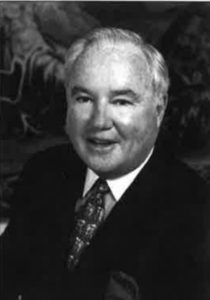
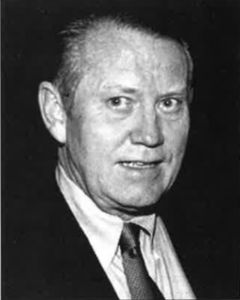
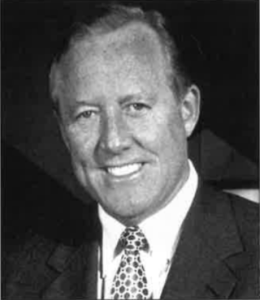
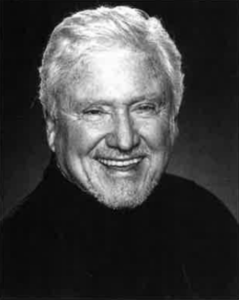
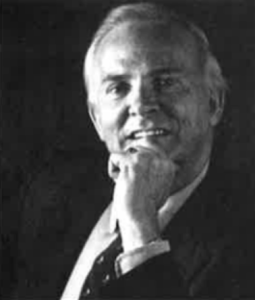
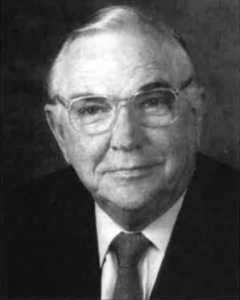
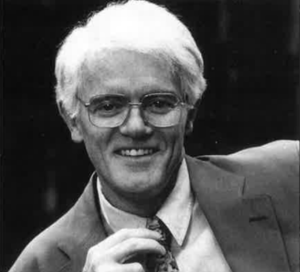
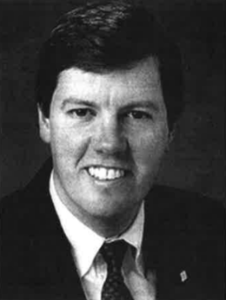
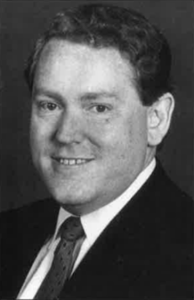
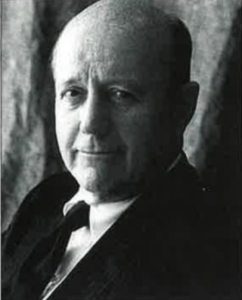
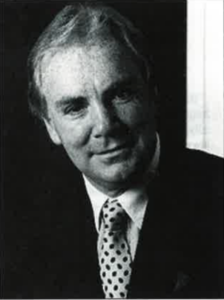
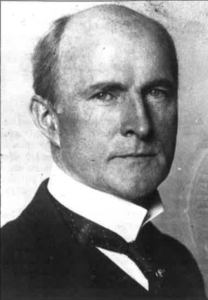
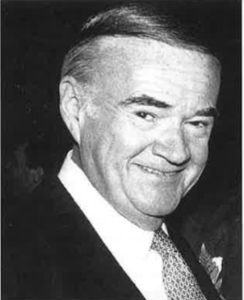
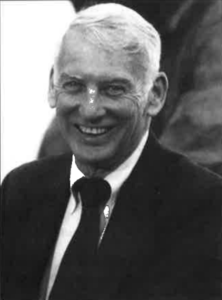
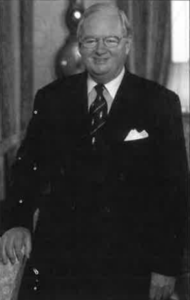
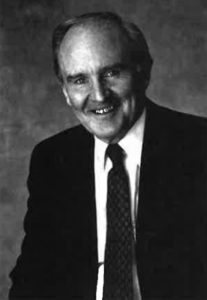
Leave a Reply